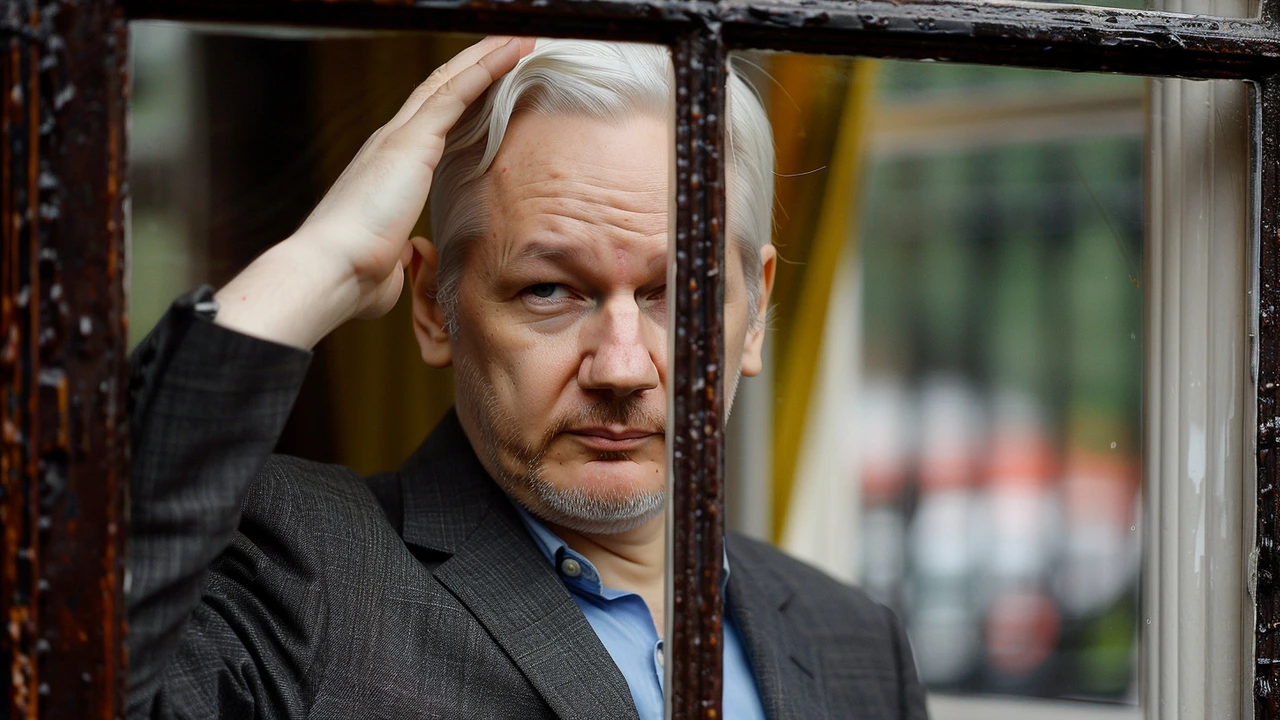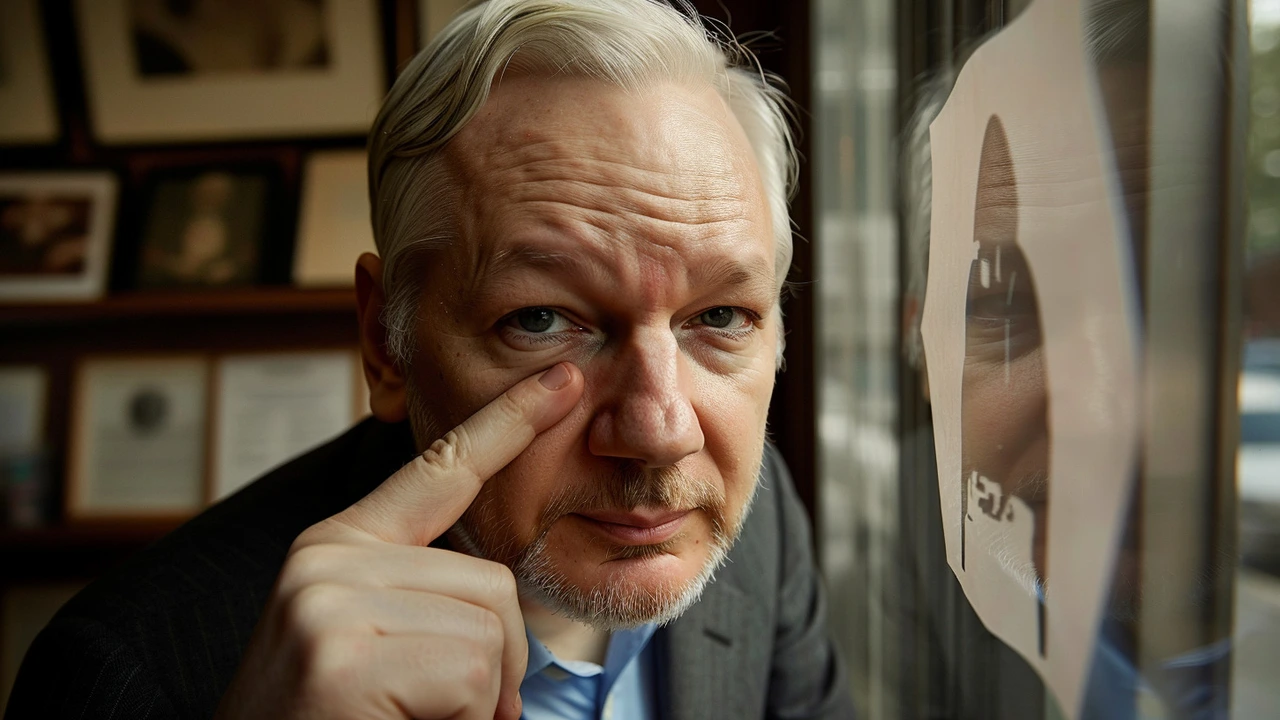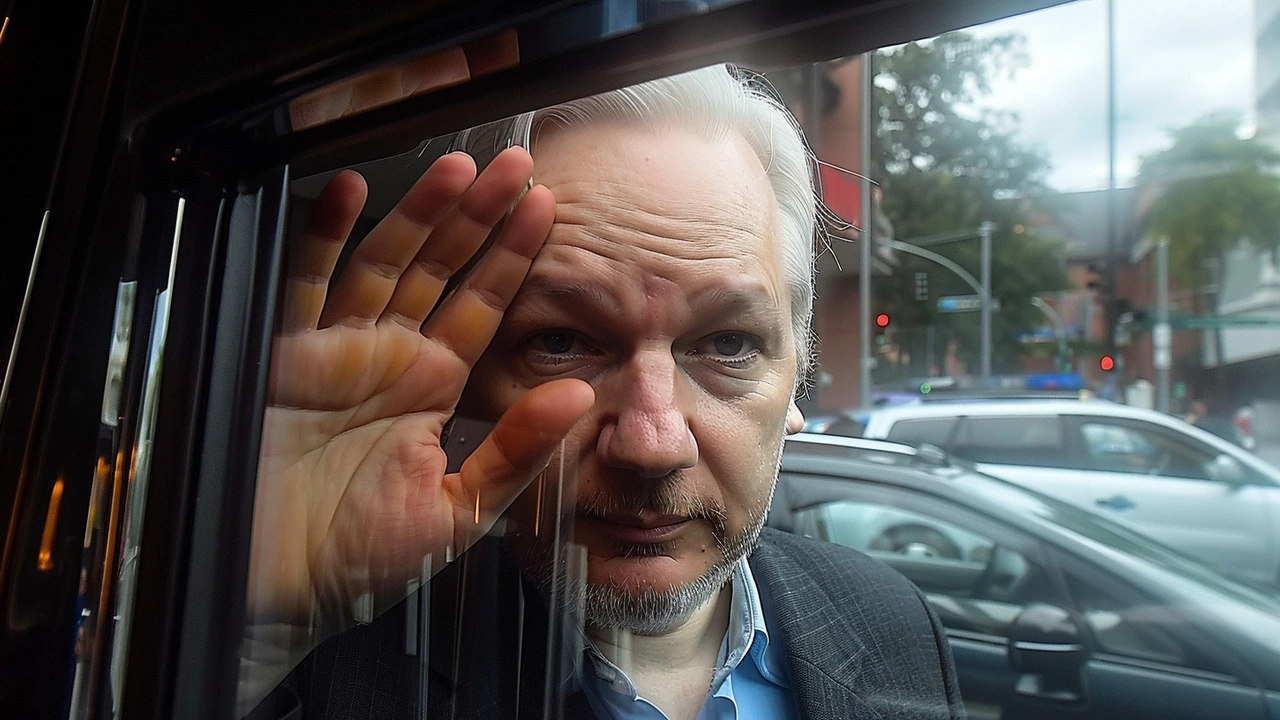Julian Assange to Plead Guilty to Espionage Act Violations in Landmark Case
 Jun, 25 2024
Jun, 25 2024
Julian Assange to Face U.S. Courtroom on Espionage Act Violations
In a dramatic turn of events, Julian Assange, the enigmatic founder of WikiLeaks, has agreed to plead guilty to violating the Espionage Act. According to court records, Assange is expected to appear in a U.S. courtroom located in the Mariana Islands soon. The plea, poised to be sealed on Wednesday, brings an end to Assange's prolonged legal battle with the U.S. government.
Prosecutors from the Justice Department have recommended a 62-month prison sentence for Assange. However, the Australian-born journalist will not serve additional time in U.S. custody, as he will be credited for the five years he spent in a British prison while contesting extradition. This agreement offers a resolution to a case that has gripped the global public for over a decade.
The Charges and Accusations Against Assange
Assange, who founded WikiLeaks in 2006, was indicted in 2019 on a series of charges related to the illegal acquisition and publication of classified information. These charges stem from his role in releasing sensitive U.S. military documents detailing activities in both Afghanistan and Iraq. Through WikiLeaks, Assange unveiled thousands of classified documents, which included reports on war activities and profiles of detainees at Guantanamo Bay.
One of the most significant accusations involves his collaboration with Chelsea Manning, a U.S. Army intelligence analyst. Federal prosecutors allege that Assange conspired with Manning to crack a password tied to a Defense Department computer system. This system contained highly classified records that, when exposed, caused a global uproar. Assange faced severe allegations of publishing the identities of confidential informants who contributed critical intelligence to the U.S. government, thereby endangering their lives and violating their assurances of anonymity.

A Turning Point in Legal Proceedings
Despite Assange's consistent denials of any wrongdoing and his assertions of practicing journalism, his anticipated guilty plea signals a stark shift in his long legal odyssey. His case, which has seen various twists and turns over the years, dates back to accusations of rape and sexual assault in Sweden in 2010—allegations he has consistently denied. More recently, a British court had granted Assange's appeal against extradition on espionage charges, contingent upon assurances from U.S. authorities regarding his free speech rights and a guarantee against the imposition of the death penalty.
Assange's decision to plead guilty comes in the wake of several noteworthy developments, including deliberations by President Joe Biden. In April, Biden was reported to be considering a request from the Australian government to drop the charges and allow Assange to return home. This illustrates the extent to which Assange's case has rattled diplomatic and political spheres across nations.
The Impact on Journalism and Free Speech
Assange's situation has sparked a broad debate about the fine line between journalism and espionage. His defenders argue that WikiLeaks was merely performing its duty to inform the public about government misconduct and wartime atrocities. However, his critics contend that his methods—including the wholesale release of unredacted documents—crossed an ethical line, endangering lives and national security.
This case underscores the ongoing tension between national security and the freedom of the press. Assange's indictment under the Espionage Act marks a rare instance where a publisher of information, rather than the original leaker, faces such severe charges. This sets a controversial precedent that could impact how governments handle similar cases in the future, raising questions about the protection of journalistic endeavors in an increasingly digital world.

Final Thoughts
As Assange prepares to enter his plea, the world watches closely. His legal saga, which has captivated international audiences, brings to light significant issues regarding transparency, governmental accountability, and the limits of press freedom. Whether viewed as a champion of truth or a reckless agitator, Julian Assange's journey underscores the evolving landscape of information sharing in the modern era.
This case will likely continue to influence discussions on the responsibility of journalists and the state's role in protecting classified information. As Assange faces this new chapter, his actions and their repercussions will remain subjects of intense scrutiny and debate.

Brittany Jones
June 27, 2024 AT 09:04Justice is just a word they use when it fits their agenda.
SUBHANKAR DAS
June 27, 2024 AT 22:47Secret Lands Farm
June 29, 2024 AT 15:36if publishing classified docs = espionage, then every journalist who ever quoted a source in the pentagon is guilty.
they're setting a precedent that could lock up anyone who dares to hold power accountable.
and yeah, some of the docs were messy, unredacted, stupid-but that’s not the point.
the point is the chilling effect. the fear. the silence.
if you can criminalize the messenger, you dont have to answer the questions.
we’re not talking about national security here, we’re talking about political survival.
they dont want transparency, they want control.
and now they’ve got the legal hammer to crush anyone who tries to shine a light.
Assange is the canary. if he goes down, the whole free press ecosystem trembles.
and yes, i know he’s flawed. so is every whistleblower ever.
but you dont punish the messenger for the message being uncomfortable.
if we let this stand, we’re signing our own press freedom death warrant.
Tamir Duberstein
June 30, 2024 AT 07:12now he’s gonna plead guilty to avoid more time, but he’s still gonna be branded a criminal.
the system just wins no matter what.
John Bothman
July 1, 2024 AT 15:00Assange is basically a real life superhero 🦸♂️💥
but also kinda a weirdo who probably still lives in his mom’s basement 🤭
like... i respect the mission but dude, why not just email the docs to the NYT instead of throwing a grenade into the internet? 🤡
also why is he still alive? shouldn’t the CIA have taken care of this by now? 😏
Dinesh Gupta
July 3, 2024 AT 08:56Shalini Ambastha
July 4, 2024 AT 18:41it feels like the same pattern everywhere.
truth is dangerous when it threatens power.
Amanda Kelly
July 5, 2024 AT 18:23He endangered lives. He didn't care.
Stop romanticizing a traitor.
Jessica Herborn
July 6, 2024 AT 13:28there's a moral difference between exposing corruption and recklessly dumping unredacted intel that gets people killed
assange crossed that line and now he's paying the price
it's not about free speech it's about responsibility
and if you think otherwise you're either naive or complicit
Lakshmi Narasimham
July 7, 2024 AT 22:25Madhuri Singh
July 8, 2024 AT 09:44after all that drama... guess even rebels get tired
Amanda Dempsey
July 10, 2024 AT 00:03Ruth Ellis
July 10, 2024 AT 19:00Peter Novák
July 11, 2024 AT 00:14